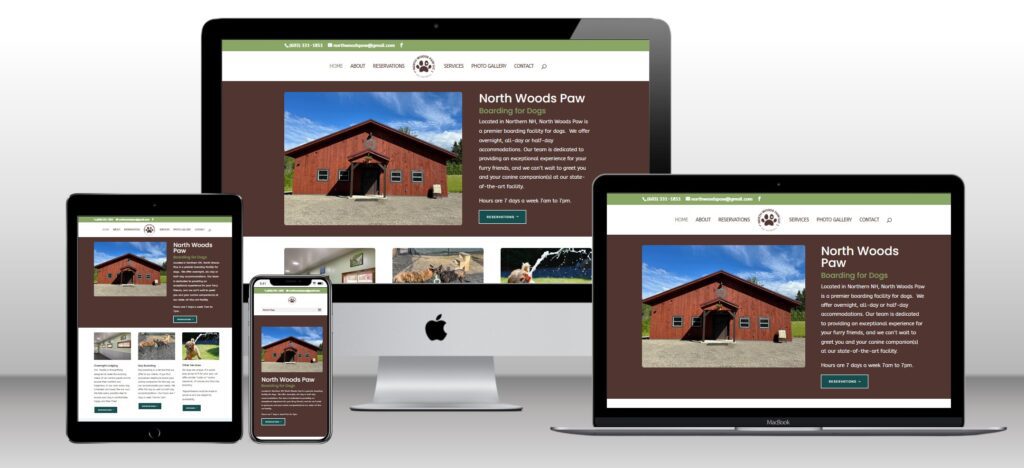Are you using only Facebook for your business? This article is for you. If your business doesn’t have a website and you do all your marketing on Facebook, what does that say about your business? It might seem like an easy, low-cost way to reach customers, but it also sends a message that may not work in your favor. While Facebook is a great tool for engaging with people, it shouldn’t be the only place your business exists online.

Customers Expect a Website
Think about the last time you wanted to learn more about a business. Chances are, you Googled it. Maybe you were looking for a menu, pricing, hours, or just trying to figure out if the business was legit. What happens if there’s no website? It feels incomplete. A Facebook page alone can make a business look small, temporary, or even untrustworthy.
A study by BrightLocal found that 98% of consumers use the internet to find information about local businesses, and 76% check a company’s website before visiting in person or making a purchase. If all they find is a Facebook page, they might move on to a competitor with a professional website that answers their questions.
Facebook is Not Enough
Facebook is designed to keep people on Facebook. It’s great for social interaction, but it’s not built to replace a real business website. The layout is the same for every page, meaning you can’t make your business stand out. There’s also the risk of Facebook changing its algorithms, and policies, or even suspending your page. If that’s your only online presence, you’re putting all your marketing power into something you don’t own.
Search engines also favor real websites. Google accounts for over 92% of the global search engine market share, and its algorithms prioritize businesses with their own websites. If your competitors have websites and you don’t, they’re more likely to be found first. In fact, a study by WebFX found that over 70% of businesses that invest in SEO and a professional website see increased traffic and conversions compared to those that rely solely on social media.
A Website Builds Trust
A professional website tells customers that you’re established and serious about your business. It gives you a space to fully explain what you do, highlight customer reviews, showcase products, and answer common questions—all in a format you control. It also makes your business look bigger, even if you’re a one-person operation.
People trust businesses that have well-designed, informative websites. 75% of consumers admit to judging a company’s credibility based on its website, according to Stanford Web Credibility Research. Without one, you might be losing potential customers simply because they don’t see enough proof that your business is legitimate.
My Website is My Marketing Hub
I use my website as my main hub, and everything else—my social media, business directories, links on other sites, and email marketing—points back to it. Instead of relying on Facebook or any other platform to be my online presence, I’ve built my website to be the central place where customers can find all the information they need.
On top of that, I use SEO (Search Engine Optimization) to rank my website at the top of Google, making it easy for potential customers to find me when they search for the services I offer. Unlike social media, where posts come and go, a well-optimized website consistently brings in traffic. And because I own my website, I don’t have to worry about changing algorithms or policies affecting my reach.
Social Media Should Support Your Website, Not Replace It
Facebook and other social media platforms are great tools, but they should be part of a larger marketing strategy. Social media is where people hang out, but your website is your home base. You can use Facebook to connect with your audience, post updates, and run ads, but the goal should be to send people to your website, where they can take action—whether that’s making a purchase, booking a service, or learning more about what you offer.
A website gives your business long-term stability. Unlike Facebook, where posts disappear in a never-ending scroll, your website is always there, ready to provide clear, organized information. According to HubSpot, businesses with websites generate 126% more leads than those without one, simply because they offer more opportunities for customers to find them.
The Bottom Line
If you’re relying only on Facebook for marketing, you’re limiting your reach, your credibility, and your ability to grow. Customers expect businesses to have websites, and without one, you’re missing opportunities. A website gives you control over your brand, helps you rank in search results, and makes your business look professional and trustworthy.
Social media is important, but it’s not enough on its own. If you want your business to thrive, a website isn’t just a nice addition—it’s a necessity.
